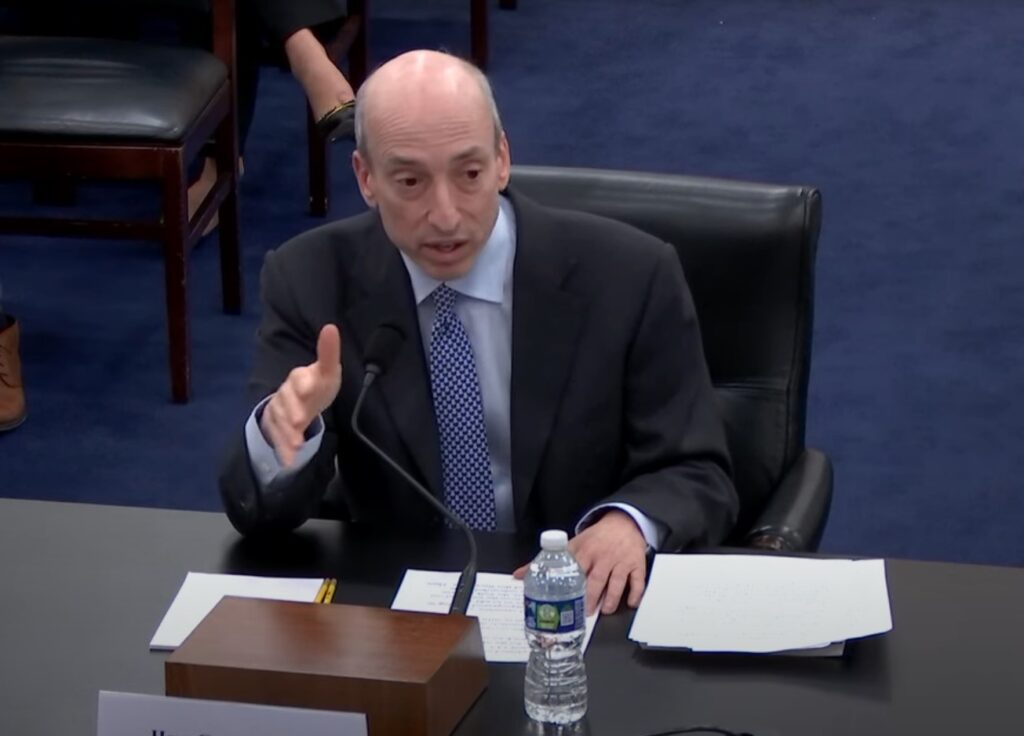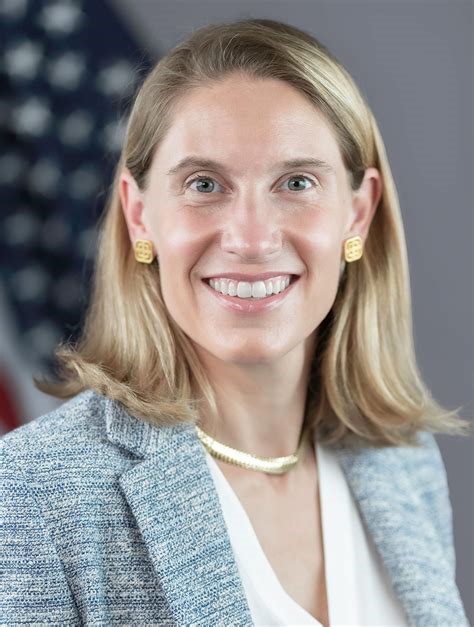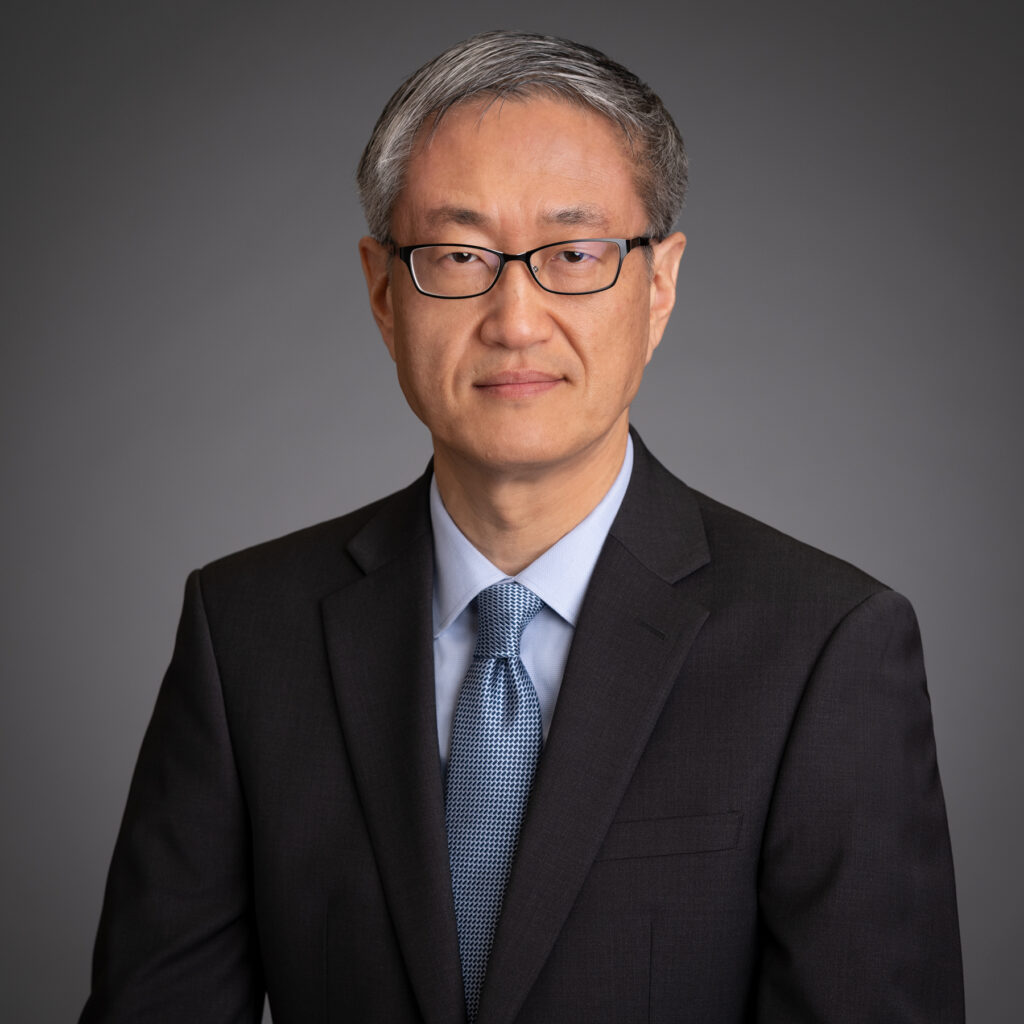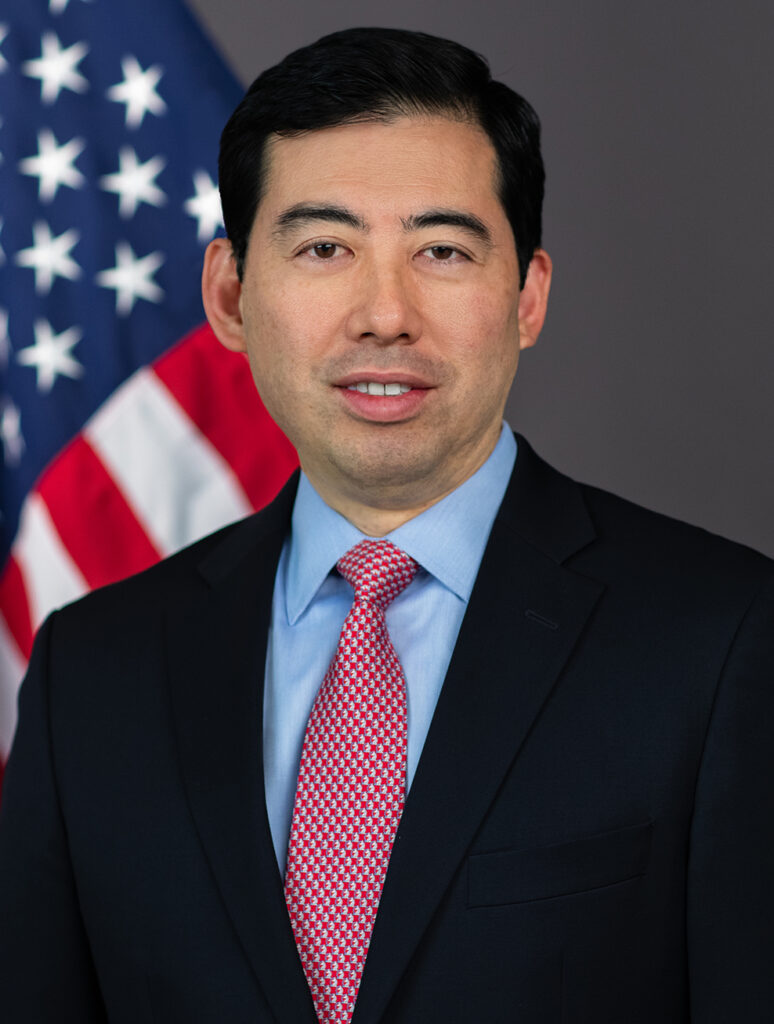Fund directors hoping for a fresh start with the regulators after three-and-a-half combative years under SEC chair Gary Gensler will get their wish.
Two of the three Democratic appointees to the commission have announced they will resign in January; the fate of the third remains uncertain.
Gensler announced last week that he will resign his position of SEC chair Jan. 20 and leave the SEC, rather than complete his five-year term as commissioner, which ends in April 2026.

Fellow Democratic commissioner Jaime Lizárraga also announced plans to resign his spot on the commission as of Jan. 17, leaving two spots open for Democratic appointees on the commission, which can have no more than three of the five positions filled by members of a single party.
The future is uncertain for the third Democratic commissioner, Caroline Crenshaw, who was reappointed by the Biden administration June 13 and vetted by the Senate Banking Committee July 11, but has not yet been confirmed as required by the full Senate as of Nov. 26.
Calls to the office of committee chair Sherrod Brown (D-Ohio) were not returned.
Many factions outside the fund industry are already pushing for change at the SEC, however.

Senate Banking Committee ranking member Tim Scott (R-S.C.), for example, demanded in a Nov. 17 letter that the SEC and Biden administration halt all rulemaking activity and withdraw nominations still unconfirmed by the Senate in order to give the Trump administration the opportunity to pursue its agenda “with a clean slate.”
The crypto industry has also not been shy about pushing for changes in the way the SEC treats digital assets which has been “very negative” Mike Belshe, CEO of institutional crypto platform company BitGo told Reuters. “We’re looking forward to unlocking that gridlock.”
Industry wish-list
Gridlock is less of a problem than overlap and overly prescriptive approaches to regulation that raise the cost of fund operations without benefits that justify the extra time and expense, according to Thomas Kim, managing director of the Independent Directors Council (IDC).
“There has been an incredible deluge of regulatory activity and rulemaking, some of which we have expressed very strong concerns about,” Kim said.
Some of those rules push onto fund boards responsibility for operational or management issues that more properly belong with fund managers, Kim said, which multiplies the difficulty of fund boards already struggling to keep up with the demand of short implementation times and overlapping compliance dates for complex new rules.
“What we hope as the SEC moves forward is for a more measured, thoughtful approach that takes into account the existing regulatory framework that governs registered funds and the important role boards play in oversight and investor protection,” he said.
The Investment Company Institute (ICI) has also weighed in with a request to the Biden administration that it delay compliance dates and hold off on further regulation in deference to the upcoming change of administration and due to the series of pre-election legal and political setbacks that forced the SEC to withdraw several rule proposals and hold off on the finalization or implementation of others.
“It is imperative that the next SEC chair be given the opportunity to determine whether and how to advance recent rule adoptions and outstanding proposals impacting investors, funds, investment advisers, and the capital markets overall,” according to a Nov. 18 letter signed by ICI president and CEO Eric Pan and ICI general counsel Paul Cellupica.

The letter – which reflects priorities similar to the wish list of changes to SEC policy and practice developed by an ICI working group earlier this year – asked specifically for delays in compliance deadlines and new regulatory changes in the following areas:
- Fund names;
- Form N-PORT;
- Reporting of securities loans;
- Short position and short activity reporting by institutional investment managers;
- Treasury clearing;
- “Dealer” and “government securities dealer” definitions;
- Regulation S-P; and
- Regulation NMS.
“Even rules that are not currently subject to lawsuits have raised significant and challenging implementation issues that the industry is working through with the staff and other affected parties,” the letter continued.
The Biden administration has yet to respond in detail, but changes among members of the commission and likely changes in the political priorities of the White House are a good indication that the industry’s strained relationship with the SEC is likely to improve, Cellupica said.
“For the last three-and-a-half years the current leadership of the SEC has not been receptive to ideas for innovation in the registered-fund space, and that included ideas of streamlining certain rule requirements and regulations that have proven to be outdated,” Cellupica told Fund Directions.
“We are cautiously optimistic that will change regardless of who the next chair is; we do expect a more receptive audience when we advocate, as we plan to do, for ideas that would foster innovation and creative thinking in the fund industry,” Cellupica said.
Questions about Gensler replacement
Any change at the top is likely to improve the industry/SEC relationship, but the details will have a lot to do with whom Trump picks to replace Gensler and who the remaining members of the commission will be, Cellupica said.
It is unclear, for example, whether the Biden administration will try to nominate and confirm a replacement for Lizárraga or push for confirmation of Crenshaw’s nomination before leaving office.

There is also no leading contender for a replacement for Gensler, though Trump’s participation in the crypto business and criticism of the Gensler SEC’s approach to crypto are likely to play a part in the decision.
Former SEC commissioner and current Robinhood chief legal officer Dan Gallagher might have represented an attempt to meet the demands of crypto and online-trading enthusiasts before telling Forbes that he does not wish to be considered.
Former SEC chair Jay Clayton was also rumored to be on the shortlist before the Trump transition team nominated him to take over as the top prosecutor in the U.S. Attorney’s office in the Southern District of New York, which includes Manhattan, Trump’s former base of operations.
Current Republican commissioners Hester Peirce and Mark Uyeda appeared to be auditioning for a potential nomination as the new chair during a House Financial Committee hearing Sept. 24.
Uyeda, who has consistently criticized the SEC’s approach to regulation under Gensler told Fortune he is not seeking the post.
No matter who ends up with the nomination, the process of getting a new SEC chair confirmed could take as long as nine months, according to a Nov. 6 alert from governance/risk/regulatory consultancy Iron Road Partners. The report blamed the potential for delay on the SEC’s “lower priority among agencies,” which could keep debate focused on the Federal Reserve, Treasury Dept. and other institutions, and the “historical disorganization of the Trump administration.”
Visible change may take a while
Practical changes in policy and practice at the agency may not come as quickly as some might like, either – especially changes in compliance schedules, or regulatory requirements for rules that have already been finalized and could only be changed by majority vote of SEC commissioners.
Even a decision about changing enforcement priorities, such as the much-criticized effort to crack down on the use of text messaging and other off-channel methods of communication, may come slowly, according to Cellupica, who served as deputy director and chief counsel for the SEC’s Division of Investment Management from 2018 to 2021 under the administration of former chair Jay Clayton.
“It’s not as easy to do a 180-degree course correction at an independent agency like the SEC as it would be at a cabinet department,” Cellupica said.
Changes in top-level policy are a lot more likely in the short term than any potential changes in the way the agency applies the rules, Cellupica said.
The Obama and first Trump administrations had very different views on how to formulate and enforce securities regulations, but those regulations and the people enforcing them still had to follow the same rules of due process for cases that sometimes took years to fully investigate and prosecute.
“I didn’t see a dramatic change in the enforcement or examinations programs when chair Clayton started,” Cellupica said.
“There may be some changes, but I think you will continue to see a very vigorous enforcement and examinations program,” he said.
SEC accelerates reports to boost liquidity monitoring
Setbacks curtail SEC agenda; many boards are too busy to notice
Court’s rejection of private funds rule adds to court rein-in of SEC rulemaking under Gensler
House finance chair taunts Gensler from ICI stage on win with crypto bill
SEC pulls back on AI, custody rules, ponders extension of swing pricing
‘Standoffish’ SEC offers new report, data on fund industry
Industry dubious on SEC mantra that self reporting shrinks penalties
Peirce slams SEC for answering compliance queries with silence, threat of enforcement
SEC insiders: Don’t self report, don’t ask SEC too many questions
ICI group prepping dozens of regulatory fixes for 15(c), proxy votes, CEF activism
ICI CEO blasts SEC for acceleration of “harmful” rulemaking
SEC knew industry would hate swing pricing, agreed with some reasons why, official admits
DIM director Birdthistle to depart SEC after two years of ambitious rulemaking
SEC commissioners remain leery of crypto; still approve spot bitcoin ETFs
Boards struggle to understand names rule, worry about overly harsh enforcement from SEC
IDC to continue pushback on SEC agenda even after final rules are implemented
SEC expands scope of Names Rule to include investment strategies
Compliance group tries to bridge SEC/industry knowledge gap
SEC heeds industry feedback, ditches swing pricing for money market funds
Gensler dismisses objections to swing pricing, citing industry’s 2020 pleas for emergency action
